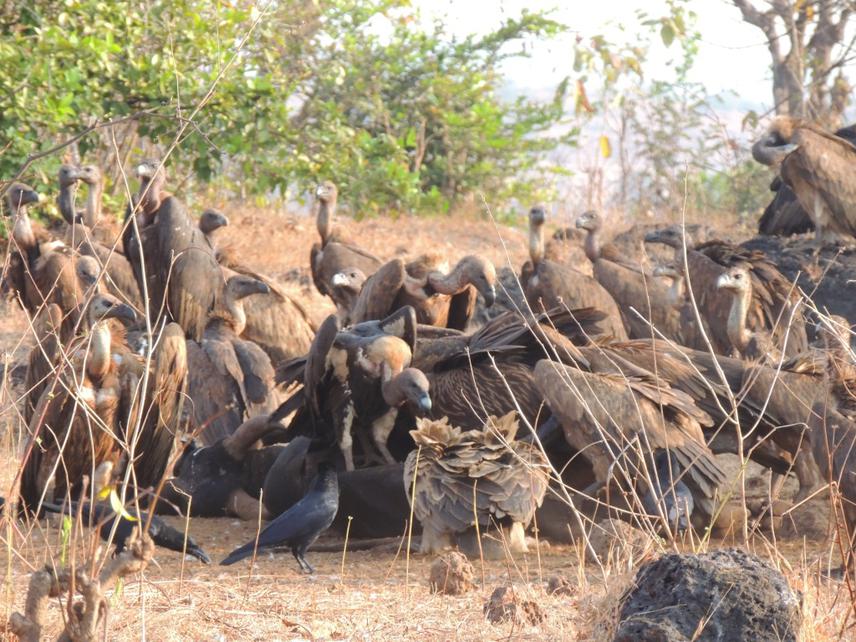Bhau Katdare
Other projects
4 Jan 2016
The Konkan Vulture Project: Monitoring and Awareness Drives at Identified Vulture Feeding Grounds
Study of effect of socio-economic, geographical conditions and state animal husbandry policies on food availability for vultures and ensuring the availability of diclofenac free food in Konkan region for the existing vulture population.

Vultures sighted at Gothe Carcass Dumping Ground.
The recent surveys show that northern parts of the Konkan region in Maharashtra have retained colonies of Gyps bengalensis and Gyps indicus whereas historic colonies in southern parts have disappeared. Reasons for this distribution were not forthcoming, but it was indeed observed that more places exist in North compared to South where carcasses were dumped in open. Therefore, a detailed study has been undertaken
• To analyze effect of socio-economic, geographical conditions, carcass disposal state policies and their implementations on vulture food base and existence of vulture colonies.
• Create action areas to establish vulture safe Konkan
The project has following phases.
Data Collection:
• Veterinarians, forest guards, cattle owners, farm owners, general public, students, members of local governance body have been identified as target group. Survey schedule shall be prepared for these target groups. There are about 2500 Gram Panchayats i.e. village level governance, 20 Municipal Corporations i.e. city level governance. A letter through Forest Department will be sent to all Gram Panchayats about vulture nests, sightings, carcass disposal methods and information about pharmacies.
• Carcass disposal methods and guidelines related data will be sought from Animal Husbandry Department
• Villages in the radius of 50 Km of existing (three vulture colonies) and past (10 vulture colonies as of 2006) vulture colonies will be visited to assess the ground level situation through survey of the identified target groups through door to door meetings, small group and village level meetings
• People will be appointed at the places where carcasses are disposed in open to get the exact status possibility of vulture feeding, and also assess current scavenger assemblage.
Analysis:
• Data will be analyzed to establish trends of carcass disposal and food availability for vultures based on geographical, social and economical factors.
• Action areas will be decided to strengthen the vulture conservation
Dissemination
• Two workshops will be conducted along with Forest Department, Animal Husbandry Department and State Biodiversity Department, coconut farm owners to convey the findings and action areas.
The further action required will be taken up as a part of the existing “Konkan Vulture Project”.